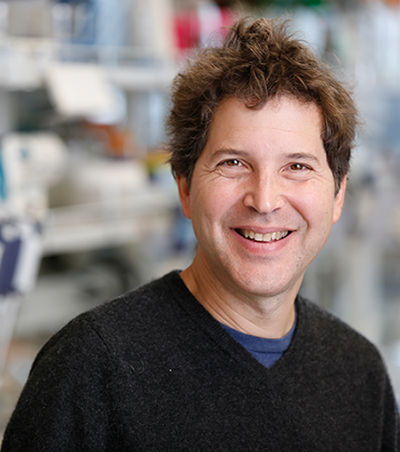| DEALFLOWUPDATE Issue #31. Friday, May 03 Hello Everyone, For this edition of the Zoic newsletter, we’ll be going through a variety of deals discussing immunotherapies, diagnostics and new advancements in human tissue replacements. We also highlight an interesting area in the field of epigenetics, which is the next step beyond our inherited DNA. More importantly, we are looking at the diagnostics that can monitor for long-term health effects such as in genetic markers. There are current findings that our own genetic code is modified in previously unknown ways. -Neal If this is your first issue, please subscribe and consider sharing with others. Additionally, we welcome news from our readers, if you’re up to something interesting, let us know. Email chad@zoiccapital.com  Dealflow Immunotherapy, Diagnostics and Tissue Replacement An area of intense interest in the medical device and pharmaceutical spaces is detecting and treating Alzheimer’s. The patient population is growing, and there is a lack of early detection and treatment. Several drugs are currently in development, mostly targeting amyloids, a plaque that builds up and may be a cause or symptom of Alzheimer’s. Some of these clinical trials have not succeeded, as amyloids may not be a good therapeutic target although a good diagnostic marker. There are also attempts to target amyloids using directed energy, another recent topic of ours. Like those previous attempts, this method may be more beneficial than a pharmaceutical one. Immunotherapy is another area of intense startup, development and acquisition activity. This approach of using one’s own immune system to fight cancer shows promise in being both more effective and safer than chemo or radiotherapy, and more personalized. However, we have not featured this topic since the path usually involves a lengthy pharmaceutical route. Current approaches also involve highly complex and expensive therapy, such as CAR-T therapy that involve engineering the patient’s own (or donor) cells. There are some approaches that we are keeping an eye on, though. Not only are these more effective and much less costly, but there are some accelerated pathways which involve either early exits or fast-track regulatory pathways which could fit our desired timeframes. In diagnostics, we have two companies that fit the two different categories in this sector. One category is life-sign monitoring, such as blood pressure or heart rate, or in this case, non-invasive monitoring of oxygenation. This category is useful in an emergency situation, or in the clinic. New technologies here that are as effective as current devices yet non-invasive can help the transition of healthcare to less expensive and more outpatient settings. These advances can also lead to more monitoring of these metrics outside the clinical setting and even at home. The other category of diagnostics is monitoring for long-term health effects. For example, genetic markers for risk of chronic diseases such as diabetes or Alzheimer’s. An interesting area in this field is epigenetics, which is the next step beyond our inherited DNA. There are findings that our own genetic code is modified in previously unknown ways during our life, and these modifications lead to changes in our body’s mechanisms such as metabolism or even behavior and elements of personality. Even more interesting, these changes can also be inherited to the next generation. Finally, an area that is still of interest is wound care and tissue replacements. Wounds are perhaps not the most headline-grabbing field, but they still affect hundreds of millions each year. Furthermore, with the rise of conditions such as diabetes, these wounds can be difficult to heal. There are numerous attempts to improve on current treatments, such as tissue replacements. These typically use human or porcine tissue, with the cells removed. This leaves behind a natural scaffold, which promotes cells to populate and regrow within, resulting in faster wound healing. New materials, methods, and additions to these scaffolds can result in even faster healing than with current products. Spotlight #ZoicNews TiE Seattle, Zoic Capital and UW Institute for Protein Design: Presentation by David Baker, PhD, Director of Institute for Protein Design at the University of Washington. Event News TiE Seattle, in association with Zoic Capital and the University of Washington’s Institute of Protein Design, hosted an innovation event highlighting how synthetic proteins, designed from scratch on a computer, can address modern challenges in medicine, energy, and technology. Natural proteins evolved over millions of years to solve the most complex challenges on Earth, however, we face new and pressing challenges today. Protein design requires high-level expertise in computing and software, biochemistry, genome sciences, biological structure, pharmacology, immunology, and other basic science disciplines, as well as clinical medicine.  Professor David Baker, Director of the Institute for Protein Design, spoke along with other researchers on the innovations in synthetic protein designs. Podcast #Market Meditations Podcast  A new episode of the Market Meditations Podcast with Chris Haydel and Neal Mody. Chris Willenken joins the show to talk about his early career in high-frequency trading as well as his love of the game Bridge. Chris is one of the world’s leading contract Bridge players. A Grand Life Master, Chris has many high finishes in major international events. Highlights include five North American Championships and a silver medal at the 2018 World Championship. Episode 19, “For The Love of The Game” is available on iTunes, Google Play Music, or Soundcloud. What We’re Reading NEW YORK TIMES The Uber I.P.O. Is a Moral Stain on Silicon Valley PITCHBOOK Big, juicy and vegan: The story behind Beyond Meat’s explosive IPO SEEKER This 3D bioprinted organ just took its first “breath” VOX How Amazon created the Prime membership program Connect With Zoic CapitalThe Biweekly Dealflow Update, curated by the team at Zoic Capital. |

Blog
Immunotherapy, Diagnostics and Tissue Replacement
© 2025 Zoic Capital.
Close Menu
Contact Us
113 Cherry St.
PMB 2981
Seattle, WA 98104-2205
E: hello [at] zoiccapital.com

